
Cuba's foreign policy has been fluid throughout history depending on world events and other variables, including relations with the United States. Without massive Soviet subsidies and its primary trading partner, Cuba became increasingly isolated in the late 1980s and early 1990s after the fall of the USSR and the end of the Cold War, but Cuba opened up more with the rest of the world again starting in the late 1990s when they have since entered bilateral co-operation with several South American countries, most notably Venezuela and Bolivia beginning in the late 1990s, especially after the Venezuela election of Hugo Chavez in 1999, who became a staunch ally of Castro's Cuba. The United States used to stick to a policy of isolating Cuba until December 2014, when Barack Obama announced a new policy of diplomatic and economic engagement. The European Union accuses Cuba of "continuing flagrant violation of human rights and fundamental freedoms". Cuba has developed a growing relationship with the People's Republic of China and Russia. In all, Cuba continues to have formal relations with 160 nations, and provided civilian assistance workers – principally medical – in more than 20 nations. More than one million exiles have escaped to foreign countries. Cuba's present foreign minister is Bruno Rodríguez Parrilla.

The International Civil Aviation Organization is a specialized agency of the United Nations. It codifies the principles and techniques of international air navigation and fosters the planning and development of international air transport to ensure safe and orderly growth. Its headquarters is located in the Quartier International of Montreal, Quebec, Canada.

The Organization of American States, or the OAS or OEA, is a continental organization that was founded on 30 April 1948, for the purposes of regional solidarity and cooperation among its member states. Headquartered in the United States capital Washington, D.C., the OAS's members are the 35 independent states of the Americas.
Child sex tourism (CST) is tourism for the purpose of engaging in the prostitution of children, which is commercially facilitated child sexual abuse. The definition of child in the United Nations Convention on the Rights of the Child is "every human being below the age of 18 years". Child sex tourism results in both mental and physical consequences for the exploited children, which may include sexually transmitted infections, "drug addiction, pregnancy, malnutrition, social ostracism, and possibly death", according to the State Department of the United States. Child sex tourism, part of the multibillion-dollar global sex tourism industry, is a form of child prostitution within the wider issue of commercial sexual exploitation of children. Child sex tourism victimizes approximately 2 million children around the world. The children who perform as prostitutes in the child sex tourism trade often have been lured or abducted into sexual slavery.
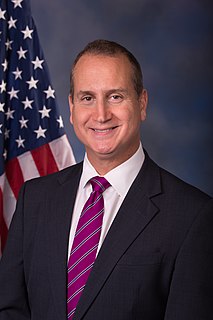
Mario Rafael Díaz-Balart Caballero is a Republican U.S. Representative for Florida's 25th congressional district. He was elected in 2002, and his current district includes much of southwestern Miami-Dade County, including the city of Hialeah, and much of the northern portion of the Everglades.

Economic sanctions are commercial and financial penalties applied by one or more countries against a targeted self-governing state, group, or individual. Economic sanctions may include various forms of trade barriers, tariffs, and restrictions on financial transactions. An embargo is similar, but usually implies a more severe sanction. Economic sanctions generally aim to change the behavior of elites in the target country. However, the efficacy of sanctions is debatable and sanctions can have unintended consequences. Economic sanctions are not necessarily imposed because of economic circumstances—they may also be imposed for a variety of political, military, and social issues. Economic sanctions can be used for achieving domestic and international purposes.

The United States currently imposes a commercial, economic, and financial embargo against Cuba. The United States first imposed an embargo on the sale of arms to Cuba on March 14, 1958, during the Fulgencio Batista regime. Again on October 19, 1960 the U.S. placed an embargo on exports to Cuba except for food and medicine after Cuba nationalized American-owned Cuban oil refineries without compensation. On February 7, 1962 the embargo was extended to include almost all exports.

The Cuban dissident movement is a political movement in Cuba whose aim is "to replace the current regime with a more democratic form of government". According to Human Rights Watch, the Cuban government represses nearly all forms of political dissent.
The Cuban American National Foundation (CANF) is a Cuban exile organization. Established in Florida in 1981 by Jorge Mas Canosa and Raúl Masvidal, CANF is an organization with numerous members in the United States and other countries. Following the death of its founder in 1997, CANF began to lose its ideological cohesion provided by Mas Canosa, which led a substantial segment of its membership to split and form the Cuban Liberty Council in 2001.
The Cuban-American lobby describes those various groups of Cuban exiles in the United States and their descendants who have historically influenced the United States' policy toward Cuba. In general usage this refers to anti-Castro groups.
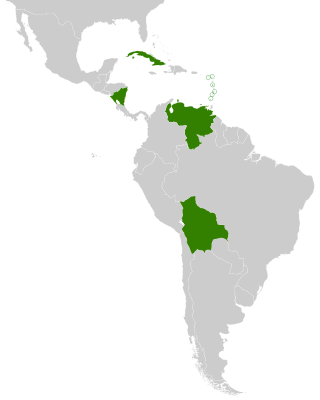
ALBA or ALBA–TCP, formally the Bolivarian Alliance for the Peoples of Our America or the Bolivarian Alliance for the Peoples of Our America – Peoples' Trade Treaty, is an intergovernmental organization based on the idea of the social, political and economic integration of the countries of Latin America and the Caribbean. The name "Bolivarian" refers to the ideology of Simón Bolívar, the 19th-century South American independence leader born in Caracas who wanted Hispanic America to unite as a single "Great Nation".
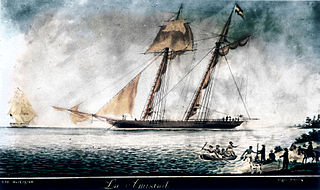
La Amistad was a 19th-century two-masted schooner, owned by a Spaniard living in Cuba. It became renowned in July 1839 for a slave revolt by Mende captives, who had been enslaved in Sierra Leone, and were being transported from Havana, Cuba, to their purchasers' plantations. The African captives took control of the ship, killing some of the crew and ordering the survivors to sail the ship to Africa. The Spanish survivors secretly maneuvered the ship north, and La Amistad was captured off the coast of Long Island by the brig USS Washington. The Mende and La Amistad were interned in Connecticut while federal court proceedings were undertaken for their disposition. The owners of the ship and Spanish government claimed the slaves as property; but the US had banned the African trade and argued that the Mende were legally free.
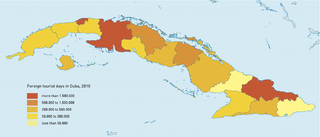
Tourism in Cuba is an industry that generates over 4.5 million arrivals in 2017, and is one of the main sources of revenue for the island. With its favorable climate, beaches, colonial architecture and distinct cultural history, Cuba has long been an attractive destination for tourists. "Cuba treasures 253 protected areas, 257 national monuments, 7 UNESCO World Heritage Sites, 7 Natural Biosphere Reserves and 13 Fauna Refuge among other non-tourist zones."
Despite being a founding member of the Organization of American States (OAS), Cuba was effectively suspended from 31 January 1962 to 3 June 2009. Thus, for almost the entire time that the OAS has been operating, Cuba has been barred from sending representatives to the OAS and effectively had its membership suspended. It was not until 3 June 2009 that foreign ministers of OAS member countries assembled for the OAS's 39th General Assembly in San Pedro Sula, Honduras, passed a vote to lift Cuba's suspension from the OAS.

Latin America–United States relations are relations between the United States of America and the countries of Latin America. Historically speaking, bilateral relations between the United States and the various countries of Latin America have been multifaceted and complex, at times defined by strong regional cooperation and at others filled with economic and political tension and rivalry. Although relations between the U.S. government and most of Latin America were limited prior to the late 1800s, for most of the past century, the United States has unofficially regarded parts of Latin America as within its sphere of influence, and for much of the Cold War (1947–1991), actively vied with the Soviet Union for influence in the Western Hemisphere.

Relations between Cuba and Venezuela were established in 1902. The relationship was aggravated by the Cold War, with Venezuela tending to side with the United States, while Cuba was a loyal ally of the Soviet Union. A destabilizing factor was the alleged Cuban support for the antigovernment guerrilla force that operates in remote rural areas. In 1999 the bilateral relation significantly improved during the Presidency of Hugo Chávez. Chávez formed a major alliance with Cuban president Fidel Castro and significant trade relationship with Cuba since his election in 1999. The warm relationship between the two countries continued to intensify. After decades of close ties in the Caribbean, several governments in the region started to distance from the United States. Hugo Chávez described Castro as his mentor and called Cuba "a revolutionary democracy".

The Community of Latin American and Caribbean States is a regional bloc of Latin American and Caribbean states thought out on February 23, 2010, at the Rio Group–Caribbean Community Unity Summit, and created on December 3, 2011, in Caracas, Venezuela, with the signature of The Declaration of Caracas. It consists of 33 sovereign countries in the Americas representing roughly 600 million people. Due to the focus of the organization on Latin American and Caribbean countries, other countries and territories in the Americas, Canada and the United States, as well as the overseas territories in the Americas of France, the Netherlands, Denmark (Greenland) and the United Kingdom are not included.
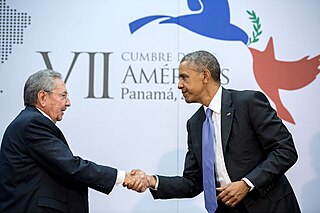
The Cuban thaw was a warming of Cuba–United States relations that began in December 2014 ending a 54-year stretch of hostility between the nations. In March 2016, Barack Obama became the first U.S. President to visit Cuba since 1928.















